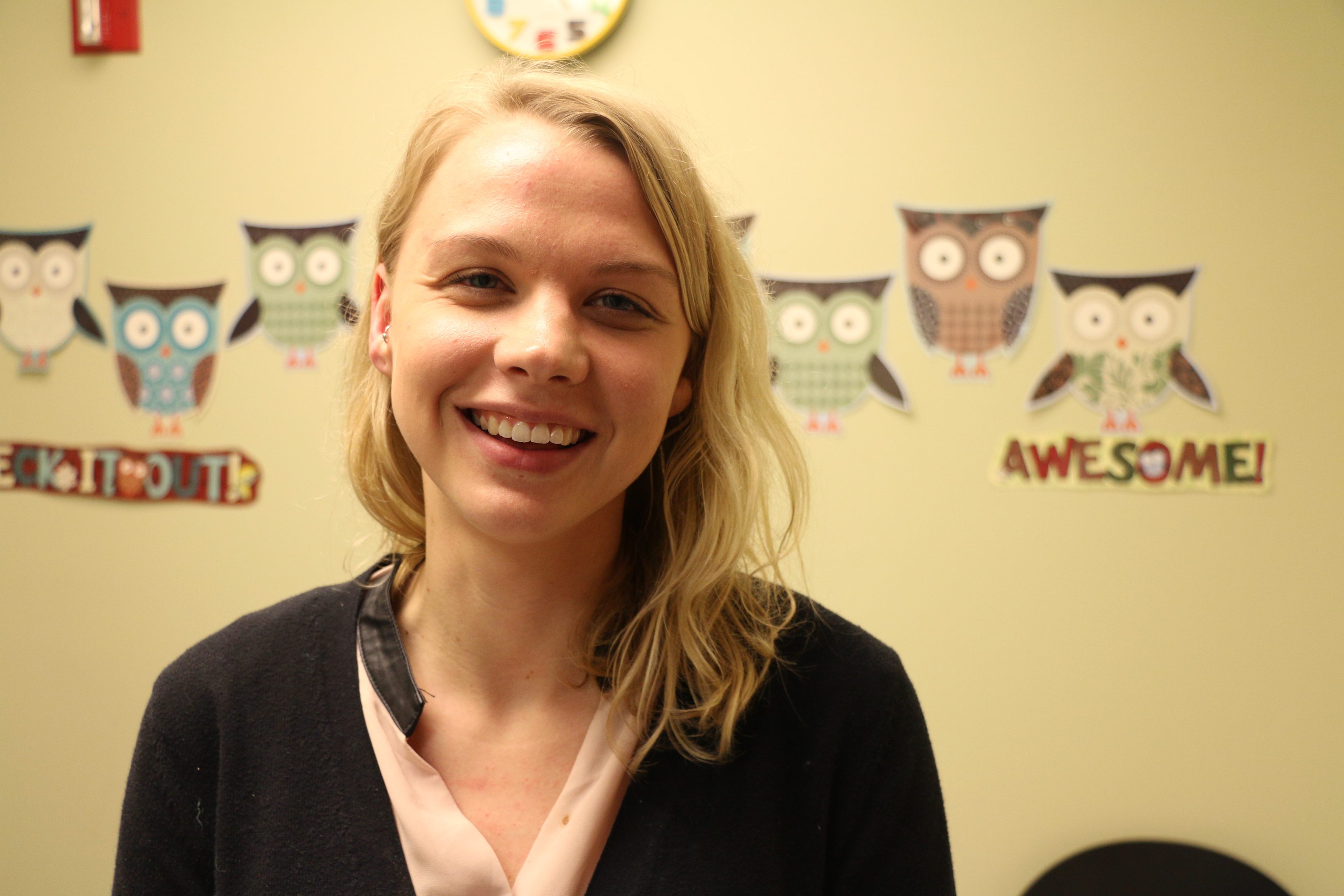School of Education Graduate Student Awarded Statewide Honor

Laura Phipps, Baylor School of Education graduate student.
Follow us on Twitter: @BaylorUMedia
Media contact: Tonya B. Lewis, (254) 710-4656
WACO, Texas (Nov. 10, 2016) – Laura Phipps, a Baylor School of Education graduate student, was awarded the 2016 Outstanding Graduate Student Award (specialist level) by the Texas Association of School Psychologists.
Originally from Herndon, Virginia, Phipps graduated from James Madison University with a bachelor’s degree in psychology and a minor in music business in 2013. Phipps chose Baylor’s school psychology program because of the unique program features.
Phipps said that she was honored that her professors in Baylor’s school psychology program took the time out to nominate her for such a prestigious award, and she was even more excited to be the recipient of the award.
“I was thrilled that I had been collectively noticed by all of my professors, as I truly aspire to be a well-rounded student. I was genuinely happy about the nomination and did not expect to be selected for the award,” Phipps said. “I know that no matter how far I want to go as a professional, all of the school psychology professors here will help me get there.”
Alex Beaujean, Ph.D., associate professor in the department of educational psychology, described Phipps as a driven student who always wants to know why.
“Laura is very intellectually curious; she wants to learn as much as she can and get as many skills as she can,” Beaujean said. “She is a delight to have as a student, and I think she is going to be one of those people in five or ten years who is going to be a trendsetter in her field.”
As part of her graduate assistantship and as a student on the ABA (applied behavior analysis) track in the School Psychology Program, Phipps works at Baylor’s Clinic for Assessment, Research and Education (CARE), part of the Baylor Center for Developmental Disabilities (BCDD).
“This field experience incorporates my curiosity for psychology and human behavior, my value of learning and education, and my love for children — all into one,” Phipps said.
Phipps knows that this accomplishment was not done alone and said that the award is a reflection of how well students are taught within her graduate program.
Phipps is hesitant to accept the role of “winner,” she said, because she doesn’t feel any competition with other students.
“I believe that every graduate student in my program is outstanding, and I feel the same sense of pride in other graduate students who are in this field. This field is all about collaboration,” Phipps said. “This award is a reminder of all the great people I work with, have worked with, and who have helped me in the learning process. It just makes me really happy to be in this field and it is encouraging.”
Phipps received the award on Oct. 19 at the Texas Association of School Psychologists (TASP) annual convention in Houston.
To learn more about the School Psychology Program in the School of Education, visit:
">https://www.baylor.edu/soe/edp/index.php?id=935208.
by Taliyah Clark
ABOUT BAYLOR UNIVERSITY
Baylor University is a private Christian University and a nationally ranked research institution, characterized as having “high research activity” by the Carnegie Foundation for the Advancement of Teaching. The University provides a vibrant campus community for approximately 15,000 students by blending interdisciplinary research with an international reputation for educational excellence and a faculty commitment to teaching and scholarship. Chartered in 1845 by the Republic of Texas through the efforts of Baptist pioneers, Baylor is the oldest continually operating University in Texas. Located in Waco, Baylor welcomes students from all 50 states and more than 80 countries to study a broad range of degrees among its 11 nationally recognized academic divisions. Baylor sponsors 19 varsity athletic teams and is a founding member of the Big 12 Conference.
ABOUT BAYLOR SCHOOL OF EDUCATION
Founded in 1919, the Baylor School of Education is accredited by the National Council for Accreditation of Teacher Education. The School prepares leaders beginning in undergraduate programs, continuing through master’s-level work and culminating in both Ed.D. and Ph.D. programs; impacts the world as students participate in faculty-guided fieldwork, service learning and community-focused research in local and global contexts; and shapes the future by mentoring the whole person, developing an understanding of theory and practice and encouraging responsiveness to one’s calling.